- AdventHealth
The AdventHealth Center for Interventional Endoscopy (CIE) recently opened Central Florida’s first dedicated Pancreas Center. Through a team of specialists across multiple disciplines, the AdventHealth Pancreas Center treats a variety of conditions, including acute and chronic pancreatitis, pancreatic necrosis and associated complications, pancreatic cysts, hereditary pancreatic cancer screening, and benign and malignant diseases of the biliary system, including strictures, stones, cysts and tumors.
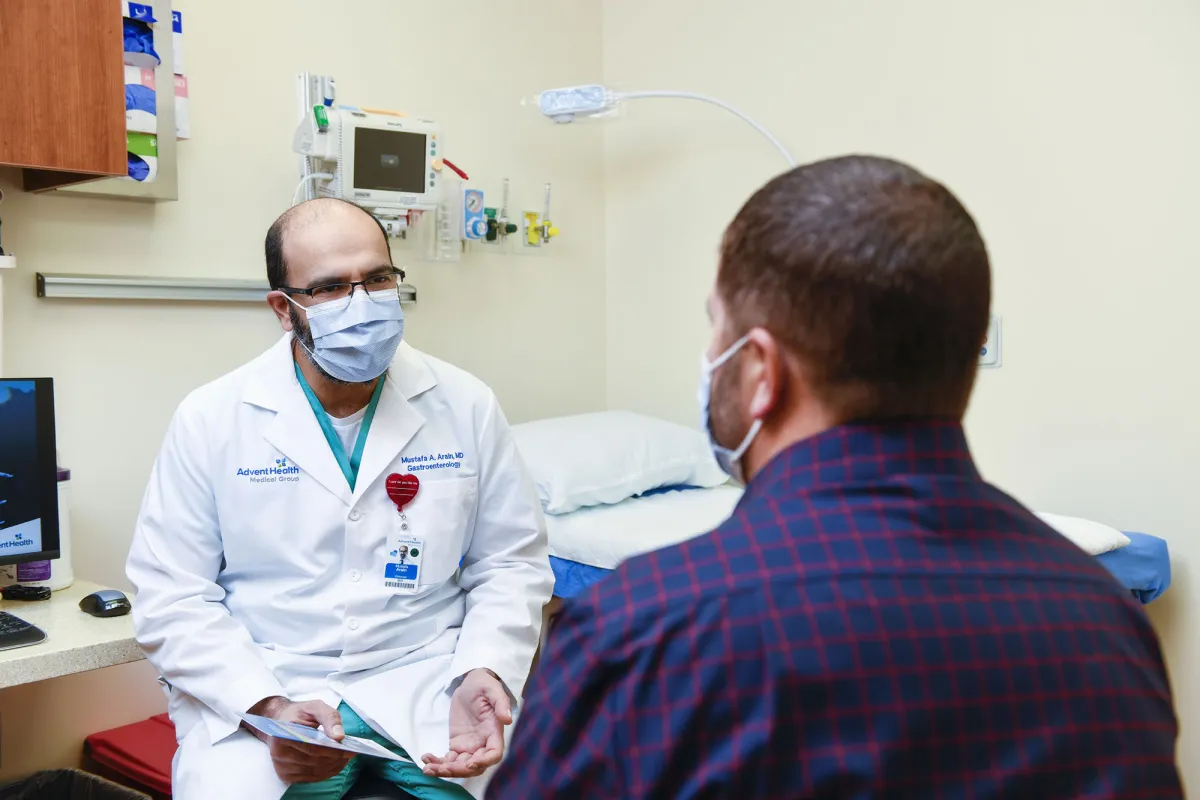
Additionally, the Pancreas Center is dedicated to advancing research, conducting clinical trials and training the next generation of physicians to focus on caring for each patient with pancreatic disease as a whole person – mind, body, and spirit.
Reflecting on the first six months of operations, Mustafa A. Arain, M.D., medical director of the Pancreas Center at AdventHealth Center for Interventional Endoscopy, answered several questions the innovative approaches to treatment, as well as new research underway that could significantly impact the field of pancreatic diseases.

Why was the Pancreas Center needed and what are the most innovative aspects?
Within Central Florida, specialized care for patients with a pancreatic disorder diagnosis has historically been unavailable, as these conditions can be difficult to diagnose and treat. This often resulted in patients getting suboptimal care.
At the AdventHealth Pancreas Center, CIE physicians are experienced in managing pancreatic diseases and provide the full spectrum of endoscopic therapies. In addition, pancreatic surgeons perform a variety of surgical options for benign, premalignant and malignant pancreatic conditions.
Our goals at the Pancreas Center include:
- Accurately diagnose and manage various aspects of a patient’s disease through a dedicated clinic for pancreatic disorders
- Provide comprehensive and coordinated clinical care using a multidisciplinary approach
- Contribute to improving our understanding and management of pancreatic diseases by conducting clinical research
- Educate the next generation of gastroenterologists in the field of pancreatic diseases
The team is committed to working in close partnership with referring physicians to co-manage patients, ensuring successful patient outcomes.
What is the approach to patient care at the CIE Pancreas Center?
The first step in any condition is to correctly diagnose the underlying disease process. This is especially true in pancreatic disorders where there continues to be a big gap in our knowledge regarding the cause and the optimal treatment approach for managing conditions such as acute and chronic pancreatitis.
Patients who are referred to the AdventHealth Pancreas Center will first undergo a clinical consultation to learn about the patient’s symptoms and ensure that an accurate diagnostic evaluation is performed. This may include laboratory testing, genetic testing, non-invasive imaging modalities (CT scan and/or MRI/MRCP) and endoscopic evaluation, such as endoscopic ultrasound (EUS). The diagnostic information, along with the patients’ clinical presentation, is used to formulate an individualized treatment plan.
What kind of treatments for pancreatic conditions are offered at the CIE?
In the management of pancreatic diseases, the treatment is tailored to the patient’s clinical picture and underlying disease process. This could be as simple as managing the patient conservatively, without any intervention or medications for incidental findings of chronic pancreatitis on an imaging study such as a CT scan, or specific interventions could be pursued in symptomatic patients.
Medical therapies include an emphasis on optimizing nutrition, as malnutrition is a common feature of pancreatic diseases. This may include a dietary consultation, pancreatic enzyme replacement therapy (PERT), vitamin and mineral intake optimization, and, in advanced diseases, supplementary enteric nutrition.

Endoscopic therapies can play an important role in patients with obstruction of the pancreatic or bile duct due to inflammation and structuring of the pancreatic or bile duct, pancreatic duct leaks and pancreatic duct stones. For example, Endoscopic Retrograde Cholangiopancreatography (ERCP) with pancreatoscopy can remove obstructing stones from the pancreatic duct via either electrohydraulic lithotripsy (EHL) or laser lithotripsy (LL). In addition, for refractory stones, the Pancreas Center also offers extracorporeal shockwave lithotripsy (ESWL).
Therapeutic EUS can help diagnose complex pancreatic diseases, such as pancreatic strictures or leaks inaccessible via routine ERCP, which can occur after pancreatic surgery or severe necrotizing pancreatitis. While technically complex and a time-consuming procedure, it can drastically improve patient quality of life and offer treatment options for complex pancreatic diseases where no good alternatives exist.
Can you explain some of the pancreatic research underway at the AdventHealth CIE?
Patients at AdventHealth’s Pancreas Center have access to both local and national clinical trials as part of their disease management and there are already several studies underway to explore clinical outcomes and help identify potential new treatments for pancreatic conditions.
One current example is the National Institutes of Health (NIH)-sponsored Diabetes Related to Acute Pancreatitis and its Mechanisms (DREAM) study. This study is a collaboration between the AdventHealth Translational Research Institute (TRI) and the CIE.
Richard E. Pratley, M.D., Diabetes Program Head at the AdventHealth Translational Research Institute, Anna Casu, M.D., Associate Investigator at the Translational Research Institute and Von Weller Family Chair in Type 1 Diabetes Research received this prestigious NIH award and are investigators on the study. The goal of the study is to understand mechanisms and outcomes associated with the onset of diabetes in patients following acute pancreatitis.
Looking ahead, what types of advancements do you foresee in 2022 and the decade beyond?
There is exciting research being conducted at TRI to understand the pathophysiologic processes involved in the development and management of pancreatic diseases.
In addition, advances in the relationship between genetic factors and environmental factors are anticipated within the next few years and could change the way pancreatic disease evolves in patients. For example, the relationship between the gut microbiome (genetic factor) and diet (environmental factor) may allow for personalized medicine that’s tailored to manage each patient’s condition.
From a therapeutic perspective, there are ongoing studies on the optimization of patients presenting with acute pancreatitis, including predicting severity, optimizing outcomes in acute pancreatitis to reduce the risk of severe pancreatitis, and the timing of endoscopic interventions (for example, ERCP in the setting of pancreas divisum and minimizing the risk of pancreatitis following ERCP).
Lastly, researchers are also working to gain a better understanding of the risk of precancerous conditions like pancreatic cysts.
For more information on the Pancreas Center at the AdventHealth Center for Interventional Endoscopy, call Call407-821-3533 or email Mustafa.Arain.MD@AdventHealth.com. For physicians, please fax all referrals to Call407-303-0795.
Recent News

The AdventHealth Neuroscience Institute is the first in Florida and one of the first in the country to begin recruiting patients with primary progressive or non-active secondary progressive multiple...
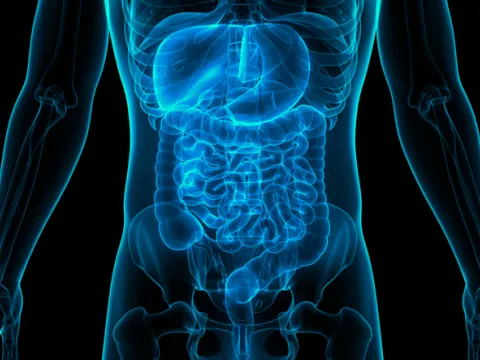
Accurately determining food intake remains a challenge in nutrition research. A new study published in Nature Metabolism and co-authored by Dr. Corbin introduces a metagenomics-powered approach to...

Discover what’s being accomplished in Central Florida to bridge the health gap with Orange County Mayor Jerry Demings and AdventHealth’s Dr. Alric Simmonds.
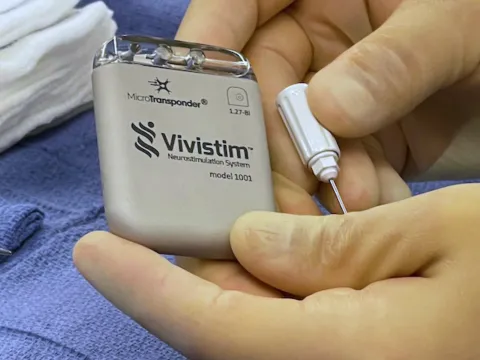
Breakthrough device offers new hope for stroke survivors struggling with rehabilitation following ischemic stroke

Jennifer Seminerio, MD, recently became one of the first in Florida to use intestinal ultrasound (IUS) to help assess and manage treatment of patients with inflammatory bowel disease (IBD). A non...
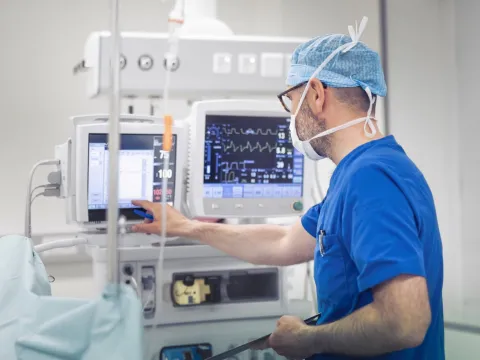
The Convergent Hybrid Ablation procedure has been gaining acceptance as an effective treatment option for long-standing persistent atrial fibrillation (AFib) since the CONVERGE trial data published in...
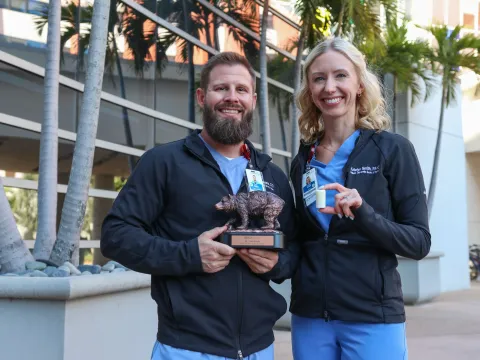
Recently, AdventHealth for Children pediatric orthopedic surgeon Sean Keyes, DO, Katelyn Smith, PA-C, and their team performed their 100th bridge-enhanced anterior cruciate ligament (ACL) repair (BEAR...

Physician leaders from AdventHealth’s emergency department, infectious disease, inpatient, pediatrics and pharmacy teams all collaborated to develop a respiratory virus testing algorithm to assist...
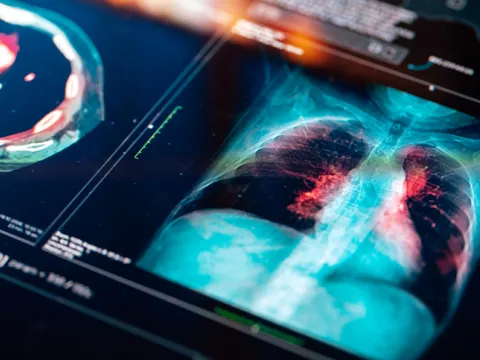
Thoracic surgeon Colleen Gaughan, MD, and her team at AdventHealth Celebration, recently became one of the first in the country to incorporate targeted imaging agent Cytalux (pafolacianine) as part of...

On the newest Inspiring Wholeness podcast, Obie Diaz, local morning radio show host, shares how a routine physical eventually led to two open heart surgeries.
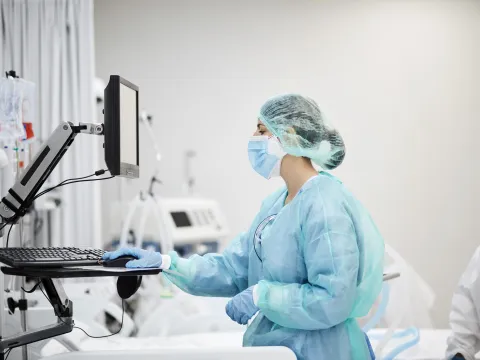
AdventHealth recently began piloting a new Genomics Risk Assessment for Cancer and Early Detection (GRACE) program that combines the use of digital mammography, artificial intelligence (AI) technology...
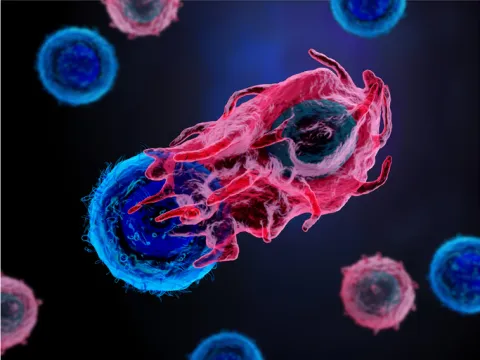
AdventHealth Clinical Research Unit (CRU) Executive Director and Medical Director of Genitourinary Oncology Guru Sonpavde, MD, co-authored an article on the AMBASSADOR Phase III clinical trial results...
